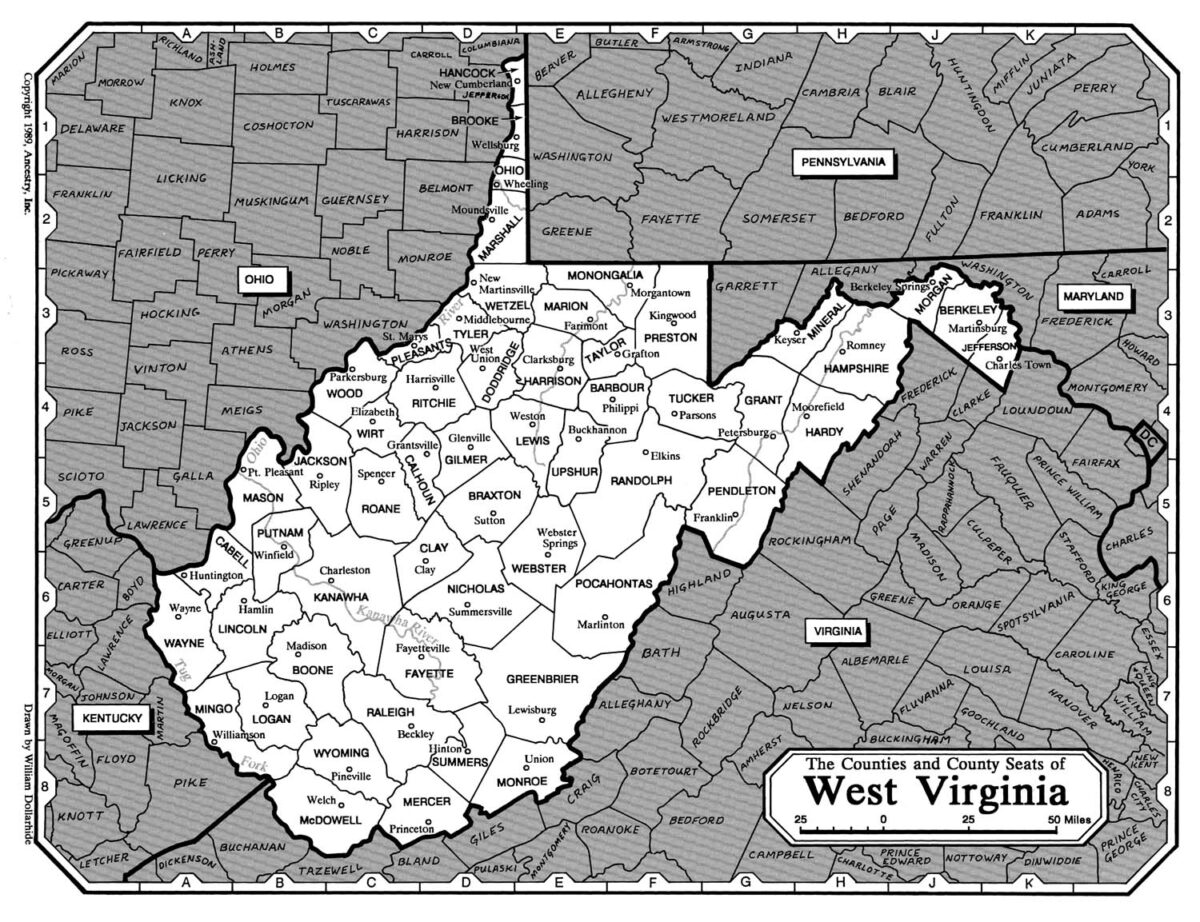West Virginia online poker players rejoice: The Mountain State has become the fifth member of the multi-state pact that allows online poker operators to share player pool liquidity. This should convince online poker sites to begin spreading games and tournaments online in the very pretty, but sparsely populated, state.

“I am pleased that our West Virginia iGaming providers will now have the opportunity to offer multi-state poker to our players,” said West Virginia Lottery Director John Myers in a press release. “This will greatly increase the potential pool of participants and thus allow our players to play for bigger winnings.”
That is if the online gambling corporations choose to open shop there. Online poker has been legal in West Virginia since 2019, but the state’s small population stopped the gambling corporations that run online casinos and sports books from opening online poker rooms.
This most likely will change.
By joining Michigan, New Jersey, Delaware, and Nevada in the Multi-State Internet Gaming Agreement (MSIGA), West Virginia Lottery officials have removed the small player pool barrier. This is exactly why Nevada and Delaware created the pact in 2014 (New Jersey joined in 2017) and why the tiny state of Delaware has been able to sustain an online poker market since then.
WSOP.com is the only site/brand that shares players between all three.
Michigan became the fourth member in 2022, but so far, only PokerStars pools its players in Michigan with those in New Jersey (it doesn’t operate in Nevada or Delaware). It’s expected that WSOP.com will add its Michigan players to its three-state player pool soon, but a timetable is unavailable.
WSOP.com is the only site operating in Nevada.
Several online gambling companies that operate in West Virginia run online poker sites in MSIGA members states, including BetMGM, Flutter (PokerStars), and Caesar Entertainment’s WSOP.com. BetMGM is the only site that doesn’t take advantage of MSIGA in any way.
According to the press release, “West Virginia iGaming Service Providers interested in offering multi-state poker will have to submit a letter of intent to the Lottery and gain necessary approvals from West Virginia and other relevant member states before going live.”
Pennsylvania stands alone, Connecticut also left out
Pennsylvania remains the one state with an online poker market that isn’t a member of MSIGA. It’s a mystery whether or not Gov. Josh Shapiro, who assumed the office this year, is even considering it. Both WSOP.com and PokerStars operate rooms in Pennsylvania.
Until the Governor’s office decides to join MSIGA and online rooms start sharing players, online poker fans in Pennsylvania will be stuck playing against each other. That means separate WSOP online bracelet and Circuit events, and tournament prize pools never hitting the magical seven-figure guarantee
Like West Virginia, Connecticut is the only other state that allows online poker, but doesn’t have any rooms simply because its population is too tiny. The only way the Native American-owned casinos there would even consider opening online poker rooms is if they were able to share player liquidity with other states.
But when Connecticut lawmakers approved online gaming last year, they did not allow for multi-state agreements. So if the tribes even wanted to open online poker rooms (hint: they really don’t), they would have to lobby for a law change.
This is opposite of how Michigan lawmakers handled online gambling legalization. Michigan was able to apply and join MSIGA only three years after approving online gambling and poker because lawmakers had the foresight to use language in the bills to make it happen if the gaming control board thought they should.
There’s no such pathway in Pennsylvania or Connecticut, meaning elected officials with no real concern about online poker consumers will have the last say on whether or not to join the poker network.


